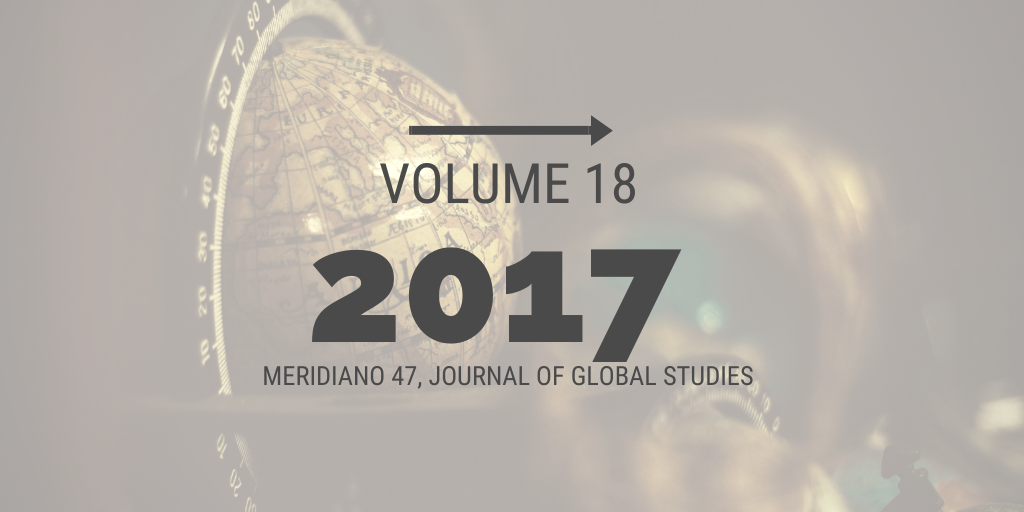The genealogy of the History teaching for International Relations
Keywords:
History of International Relations, Global History, Teaching and IR, Ensino e Relações Internacionais, Relações Internacionais HistóricasAbstract
This genealogical narrative reflects on how different generations share the same spaces of experiences and converge their horizons of expectations about the place of History in International Relations. The future of teaching History for IR depends on how traditional disciplines and the National Curriculum Guidelines would respond to new IR challenges. Global History teaching initiatives and local experiences of teaching History to International Relations has already taken shape in some universities in Brazil.
Downloads
References
BAUMAN, Zigmunt. Modernidade e ambivalência. Rio de Janeiro: Jorge Zahar, 1999.
BERNAL-MEZA, Raúl. América Latina em el mundo: el pensamiento latino-americano y la teoria de relacionens internacionales. Bueno Aires: Grupo Editor Latinoamericano, 2005.
BLOCH, Marc. Apologia da História: ou o ofício do historiador. Rio de Janeiro: Jorge Zahar Editor, 2001.
BRANDS, Hal; SURI, Jeremi. The power of the past: History and Statecraft. Whashington, D. C.: Brookings Institution Press, 2016.
BRAUDEL, Fernand. Escritos sobre a história. São Paulo: Perspectiva, 2009.
BULL, Hedley. The anarchical society: a study of order in world politics. New York: Columbia University Press, 2002.
BUZAN, Barry; LITTLE, Richard. “Introduction to the 2009 reissue”. In Watson, Adam. The Evolution of International Society. NY: Palgrave, 2009.
CERVO, Amado Luiz. Conceitos em relações internacionais. RBPI, ano 51, no 2, p. 8-25. 2008.
CORSTEN, Michael. The Time of Generations. Time Society. v. 8, p. 249. 1999.
COX, Michael . “Introduction”. In CARR, E. H. The Twenty Years’ Crisis, 1919-1939. Nova York: Palgrave, 2001.
CROSSLEY, Pamela Kyle. O que é história global? Petrópolis-RJ: Ed. Vozes, 2015.
DCNs ABRI. Minuta de Diretrizes Curriculares Nacionais para o curso de graduação em Relações Internacionais. ABRI. 2012.
DCNs. CNE. Minuta de Diretrizes Curriculares Nacionais para o curso de graduação em Relações Internacionais. CNE. Brasília, Abril de 2017.
DUROSELE, Jean-Baptiste. Todo império perecerá: teoria das relações internacionais. Brasília: UnB, 2000.
____ & RENOUVIN, Pierre. Introduction à l’histoire des relations internationales. Paris: Armand Colin, 1991.
FOUCAULT, Michel. Dits et écrits. Vol. I et II. Paris. Quarto Gallimard, 2001.
GEHRE, Thiago; ARRAES, Virgílio. Introdução ao estudo das relações internacionais. São Paulo: Saraiva, 2013.
HOBSBAWN, Eric. Sobre a História . São Paulo: Companhia das Letras, 1998.
HUNT, Lynn. Writing history in the global era. NY: W.W. Norton & Company, 2015.
JAGUARIBE, Helio. “Prologo”. In ORTEGA Y GASSET, José. História como sistema. Mirabeau ou o político. Brasília: Editora UnB, 1982.
KNUTSEN, Torbjorn. A history of international relations theory. Manchester: Manchester University Press, 1997.
KOSELLECK, Reinhart. Futuro Passado: contribuição à semântica dos tempos históricos. Rio de Janeiro: Contraponto, 2006.
KUPCHAN, Charles A.. No One’s World: the West, the rising rest, and the coming global turn. New York, Oxford University Press, 2012.
MACMILLAN, Margaret. Usos e Abusos da História. Editora Record, 2010.
MILO, Daniel. Trahir le temps. Paris: Hachete, Pluriel, 1991.
ORTEGA Y GASSET. José. La rebelión de las masas. Caracas: Espasa-calpe, 1986.
PICQ, Manuela. Rethinking IR from the Amazon. RBPI. v. 59, n. 2, Brasília, 2016.
SANTOS. Norma Breda (2005). História das Relações Internacionais no Brasil: esboço de uma avaliação sobre a área. História, SP, v. 24, n. 1, p.11-39. 2005.
SARAIVA, José Flávio S. (org). Relações Internacionais dois séculos de história: entre a preponderância europeia e a emergência americano-soviética (de 1815 a 1947). Vol. 1. Brasília: IBRI. 2001.
____. Revisitando a Escola Inglesa. RBPI. v. 49, n. 1, p. 131-138. 2006.
SHEEHAN, Michael . The balance of power: theory and history. London: Routledge, 1996.
SMOUTS, Marie-Claude. As novas relações internacionais: práticas e teorias. Brasília: Editora Universidade de Brasília, 2004.
WALLERSTEIN, Immanuel. The Modern World-System. New York: Academic Press, 1974.
WILCOX, Lauren. Queer Theory and the “Proper Objects” of International Relations. International Studies Review, p. 612-615. 2014.



